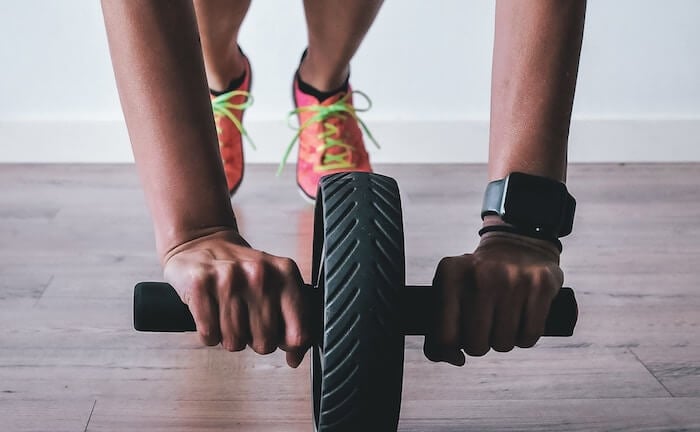When I think about the mistakes I’ve made, the unkind words I’ve spoken, the opportunities I’ve let slip by, the unhealthy mindsets I’ve fostered — it makes me want to hang my head in shame. On too many occasions, I have not acted as my best self, the self I want to be. The self I know I’m capable of being. On too many occasions, I have accepted mediocre, I’ve stood by when I should have acted, I’ve said “no” to life when I could have said “yes.” If there is any grace in this humbling admission, it’s the knowledge that I’m not alone. Failing to live up to expectations, our own or that of others is part of the human condition. We are flawed, every single one of us. And as hard as we may try to be our “best selves,” we will never reach that goal. We will never reach it because our best self is a work in progress. It will be until the day we die. But . . . we can be an “improved self.” We can define the best self we want to be and strive daily to come as close to that as possible. Yes, we will forget. We will falter. We will fail at times. However, as long as we keep trying to improve, we are doing our best. I believe without our mistakes and failures, we can’t come close to becoming our best selves. Without them, we don’t know where and how to improve. We may be inspired to set lofty goals, but it’s the mistakes along the way that show us the next step we need to take. Failure may be humbling, but it is a teacher. If you shift your perspective just a bit, maybe you’ll even see your lapses as a gift. I love what thought leader and author Marianne Williamson says about failure and becoming your best: That has certainly been true for me. In my young adult years, I did everything possible to hide my failures and flaws. I had a hard time facing my negative qualities and admitting, “Yep, you belong to me.” With every passing year, you gain acceptance that perfection is an impossible goal and a waste of time. You learn to forgive yourself and can more easily move on. You learn to extract the valuable nuggets from your blunders before you run away from them with your head down and eyes averted. You learn that real self-improvement means embracing your strengths and weaknesses. I want to improve myself every year and be a good person, and I believe you do as well. Let’s work together to accept the inevitability of mistakes, flaws, and setbacks, while continuing to move toward the best self we all desire to be.
Here are some thoughts on being a good person every day:
Define your best self. Set the benchmarks for self-improvement by specifically defining what they are. What does your ideal self look like in all areas of your life? I like to begin this process by writing down the various roles of my life. For example: Parent Partner Friend Coach Entrepreneur Writer Teacher Then I define my best self using this sentence: “I want to be the best parent (partner, friend, etc.) I can be by . . . .” Then I fill in the blank until I run out of ideas or goals. Like this: I want to be the best parent I can be by . . .
Allowing my young adult children to be themselves, even if they make choices I wouldn’t.Showing interest in their interests.Being available when they need my support or input.
You get the picture here. Define the specific actions you think contribute to being your best self in all of your life roles. But don’t stop with your roles. Go further to include your values, interests, goals, and dreams. These might include: Health Fitness Travel Home Hobbies Spirituality Personal Growth Learning Confidence Appearance Integrity Personal Habits Thought Habits Create your own list, and follow the steps outlined above. Use the sentence, “I want to be my best self in my health (fitness, travel, home, etc.) . . .,” and then write down specific actions or changes you aspire to make. Prioritize your list. You may end up with a list of dozens of changes or actions you’d like to implement. Don’t let this overwhelm you — remember, becoming a better person is a constant work in progress. I like to begin where I’m feeling the most discord between the current situation and where I’d like to be. This is often a situation where I’m acting against my integrity or values. When you behave against your integrity and values, you experience emotions of guilt, shame, self-loathing, anxiety, and even depression. You aren’t being true to yourself, so your psyche is rebelling. You also may notice problems in your work or relationships. It’s hard to improve other areas of your life until you address these. If you aren’t clear on your core values, here’s a good list of values to help you. Another great place to begin is with your close relationships. Our relationships are critical to our happiness, and I know all of us have ways we can improve our marriages, partnerships, parenting, friendships, and work connections. By learning skills of emotional intelligence and healthy communication, we can make huge strides in becoming better people. Often we want to improve by developing good habits and breaking bad habits. Maybe we want to exercise, eat more vegetables, or learn to meditate regularly. Developing good habits is hard. Dropping bad habits is even harder. One of the most valuable skill sets you can learn to assist you is the skill set of developing good habits that stick. Without these skills, it’s nearly impossible to stick to your habit goals. Sometimes you can develop one keystone habit, like exercise, for example, that will trigger a whole cascade of other positive habits. You can learn more about the skills of habit creation here. Practice small change daily. No matter how you decide to begin, don’t feel you have to perform an “extreme life makeover” in one afternoon. Simply by defining your best self and the actions you need to take, you’ve created awareness and motivation. If you take just one small action a day to align with your “best self” definition, you’ll accumulate a lot of change over a year’s time. Start with small actions that take very little time, maybe five minutes or less. Make it so easy, you have no excuse to avoid taking following through. Slowly increase your time or the difficulty of your actions week by week. If you miss a day, don’t shame yourself. Just start again the next day. As you practice positive actions for self-improvement, begin to see the process as rewarding and satisfying as the result. Don’t wait until you see yourself as the best you can be to feel proud and accomplished. Enjoy the journey and every step along the way. Expect setbacks. As I mentioned before, you will have setbacks. Examine your mistakes and failures to learn from them. This alone is an act of bettering yourself. Then take what you’ve learned and try again. Don’t allow yourself to fall in a hole of apathy, despair, or cynicism. Don’t talk yourself into the lie that you don’t have what it takes. Don’t decide that past failure prevents you from future success. The only thing that prevents you from becoming a better person is making the choice to give up and do nothing. Even if you have a day when you’re down or don’t feel well, you can still take some small, manageable action to better yourself. Say a kind word. Learn something new. Apologize to someone. There’s always something we can do.Find inspiration. Life sometimes seems to conspire against our desire to become better people. There are so many negative influences and temptations to throw us off track or confuse our goals. Make a point of finding people who inspire and motivate you. Surround yourself with positive, happy friends and family. Read uplifting material, and listen to happy, joyful music. Continue to read articles, books, and blogs about personal evolution, self-awareness, and emotional intelligence. If there are people or environments in your life that pull you away from your goals of self-improvement, you’ll need to pull yourself away from them. Don’t allow them to undermine your hard work and daily efforts to improve. You can inspire yourself by reviewing all of the positive changes you’ve made in the past to become a better person. Acknowledge your successes, and congratulation yourself on your willingness to grow. Affirm to yourself daily, “Every day, in every way, I am becoming better and better.” (Thank you Louise Hay!) If you’ve read this far, you’re definitely motivated to become the best version of yourself. What a noble and life-affirming goal! There are so many opportunities in every moment of our lives to become more of the person we want to be. Define who that person is for yourself, and start taking action to become a better you, every single day.


